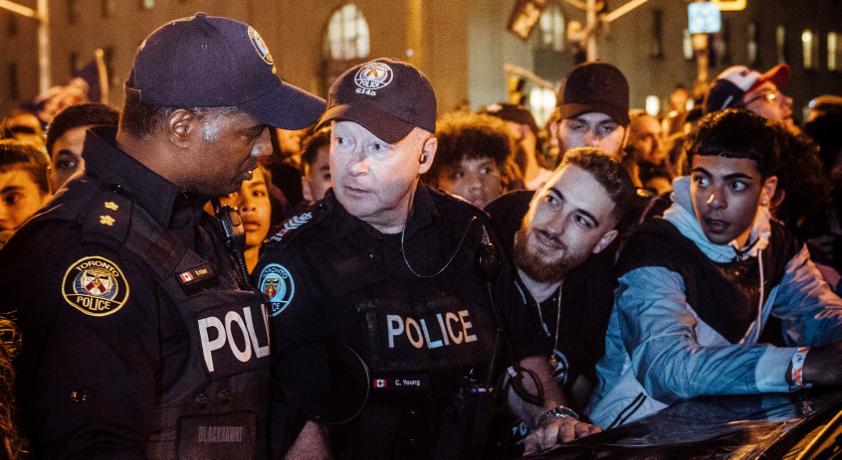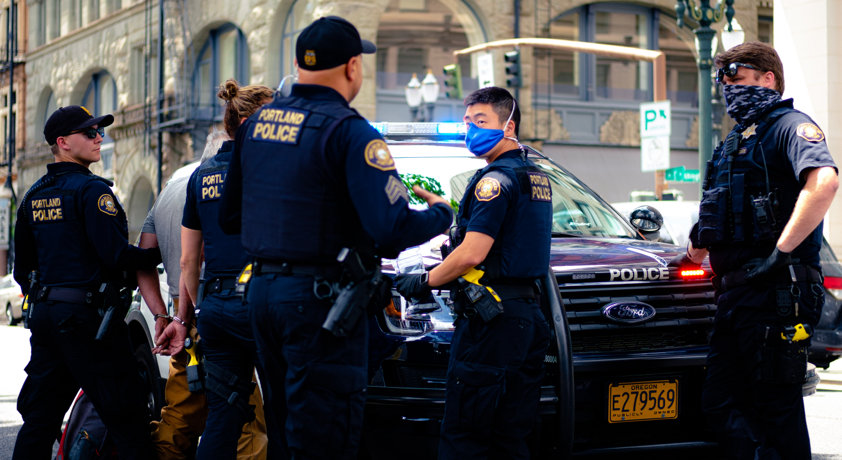Last Updated: 31 May, 2023

Police Detective
A police detective is a specialized law enforcement professional responsible for investigating crimes, gathering evidence, and identifying suspects. With their expertise in investigative techniques, they play a crucial role in solving criminal cases and ensuring justice. Police detectives employ various strategies to uncover the truth, contributing to the safety and security of the communities they serve.
Police detectives serve as the backbone of investigative operations within law enforcement agencies. Their meticulous approach to gathering evidence, analyzing crime scenes, and identifying suspects help bring perpetrators to justice. By working closely with other law enforcement personnel, including forensic experts and prosecutors, police detectives contribute to the overall effectiveness of the criminal justice system.
What Is a Police Detective?
A police detective is a highly trained and specialized law enforcement professional entrusted with the critical task of investigating criminal activities. Their primary objective is to uncover evidence, gather information, and build strong cases against individuals suspected of committing crimes. Unlike uniformed officers who primarily focus on maintaining public order, police detectives utilize their advanced investigative skills and knowledge to delve deep into complex cases, employing various techniques such as surveillance, interviews, and forensic analysis.
What Do Police Detectives Do?
Solving Crimes and Investigating Criminal Activities
Police detectives are at the forefront of solving crimes and conducting thorough investigations into criminal activities. They meticulously examine crime scenes, looking for crucial evidence that can shed light on the nature of the crime and the identity of the perpetrators. Through their expertise in forensic analysis, they piece together the puzzle of the crime, connecting clues and establishing timelines. With their sharp analytical skills, they identify patterns, motives, and potential leads, working tirelessly to bring justice to victims and their communities.
Collecting and Analyzing Evidence
One of the core responsibilities of police detectives is the collection and analysis of evidence. They carefully gather physical evidence from crime scenes, such as fingerprints, DNA samples, and ballistic evidence, ensuring that proper chain of custody procedures are followed. Utilizing advanced forensic techniques, they examine and process the collected evidence, seeking insights that can link suspects to the crime. Through meticulous documentation and rigorous analysis, police detectives compile a solid evidentiary foundation that supports their investigative efforts.
Interviewing Witnesses and Suspects
Effective communication and interpersonal skills are essential for police detectives when it comes to interviewing witnesses and suspects. They conduct interviews with individuals who may have witnessed the crime, gathering firsthand accounts and valuable information. During suspect interviews, detectives employ various interviewing techniques to elicit truthful and reliable statements. Through careful questioning and active listening, they seek to uncover additional evidence, expose inconsistencies, and establish the veracity of witness and suspect testimonies.
Police Detective Job Description
As dedicated professionals in law enforcement, police detectives carry out a range of duties and responsibilities to maintain public safety and uphold the principles of justice. Some key duties and responsibilities of police detectives include:
Duties and Responsibilities of Police Detectives
- Conducting thorough investigations into crimes, including homicides, robberies, fraud, and other criminal activities.
- Gathering and analyzing evidence from crime scenes, such as fingerprints, DNA, and surveillance footage.
- Interviewing witnesses, victims, and suspects to gather information and obtain statements.
- Collaborating with other law enforcement agencies, forensic experts, and prosecutors to build strong cases.
- Maintaining detailed records and documentation of investigations, including reports, evidence logs, and case files.
- Staying updated on relevant laws, regulations, and investigative techniques through ongoing training and professional development.
- Utilizing advanced technologies and tools for data analysis, crime mapping, and information management.
- Testifying in court proceedings as an expert witness, presenting findings, and providing accurate and reliable testimony.
- Working closely with communities to establish trust, address concerns, and promote crime prevention initiatives.
- Assisting in the apprehension and arrest of suspects, ensuring proper protocols and legal procedures are followed.
How to Become a Police Detective
Becoming a police detective is a fulfilling and challenging career path that requires a combination of education, experience, and dedication to law enforcement. Aspiring detectives must navigate a series of steps, including completing the necessary education, gaining relevant law enforcement experience, meeting minimum service requirements, expressing interest in detective positions, and undergoing specialized training. Each step in this journey plays a crucial role in preparing individuals for the responsibilities and demands of detective work.
Step 1: Complete the Necessary Education
The journey to becoming a police detective typically begins with fulfilling the required educational qualifications. Although the specific educational requirements may vary depending on the department and jurisdiction, a high school diploma or its equivalent generally serves as the minimum requirement. However, many aspiring detectives choose to go beyond the basics and pursue higher education to enhance their knowledge and skills.
a. Earn a Degree in Criminal Justice or a Related Field
Consider pursuing a bachelor’s degree in criminal justice, criminology, or a related field. These programs provide a comprehensive understanding of the criminal justice system, investigative techniques, and relevant legal frameworks. The coursework may cover subjects such as criminal law, forensic science, sociology, psychology, and ethics.
b. Gain Specialized Knowledge
Alongside a formal degree, consider acquiring specialized knowledge through elective courses or certifications that focus on investigative skills, crime analysis, evidence handling, or forensic procedures. These additional qualifications can strengthen your resume and demonstrate your commitment to a career in criminal investigations.
Step 2: Gain Relevant Law Enforcement Experience
Becoming a police detective typically requires a solid foundation in law enforcement. Acquiring experience as a police officer prepares individuals for the responsibilities and challenges of detective work. Here’s how you can gain relevant experience:
a. Apply to a Police Department
Start your journey towards becoming a police detective by applying to a police department in your desired jurisdiction. Research the department’s requirements and submit your application, ensuring that you provide all the necessary documentation and meet the eligibility criteria.
b. Complete the Selection Process
Once your application is accepted, you will undergo a rigorous selection process that may include written exams, physical fitness tests, background checks, and interviews. The purpose of this process is to assess your suitability for a career in law enforcement and determine your potential for advancement into specialized roles like detective work. Dedicate yourself to each stage of the selection process, showcasing your physical capabilities, critical thinking skills, and commitment to public service.
c. Serve as a Police Officer and Demonstrate Dedication and Professionalism
After successfully completing the selection process, you will begin your career as a police officer. Embrace this opportunity to gain valuable experience and demonstrate your dedication and professionalism in serving the community. Work diligently to uphold the principles of law enforcement, maintain public safety, and build a strong foundation of practical knowledge and skills. Display a strong work ethic, integrity, and a commitment to ethical conduct, as these qualities are essential for progression and consideration for detective positions in the future.
d. Pursue Professional Development Opportunities
While serving as a police officer, actively seek professional development opportunities within your department. Attend relevant training programs, workshops, and courses that enhance your understanding of investigative techniques, evidence collection, and other skills relevant to detective work. Engage with experienced detectives and senior officers to learn from their expertise and seek mentorship. Continuously strive to expand your knowledge base and improve your effectiveness as a law enforcement professional.
Step 3: Meet Minimum Service Requirements
Most police departments require officers to serve a minimum number of years on patrol before becoming eligible for promotion to the rank of detective. The specific service requirements may vary, but it is common for officers to have at least three to five years of experience in patrol duties. During this time, officers gain practical knowledge, refine their skills, and establish a solid foundation for future investigative work.
Step 4: Express Interest and Apply for Detective Positions
Once you have met the necessary education and experience requirements, you can express your interest in becoming a police detective within your department. Here’s how to navigate this stage:
a. Research Internal Policies and Procedures
Familiarize yourself with the internal policies and procedures of your department regarding the promotion process for detectives. Understand the eligibility criteria, application deadlines, and any additional requirements such as written exams or interviews.
b. Prepare a Letter of Interest
Write a formal letter expressing your interest in pursuing a career as a detective. Highlight your qualifications, relevant experience, and dedication to serving the community. Emphasize your commitment to upholding the principles of justice, fairness, and integrity.
c. Submit Your Application
Follow the department’s guidelines to submit your application for a detective position. Ensure that you provide all the necessary documents, such as your letter of interest, resume, transcripts, and any other required paperwork.
d. Undergo Evaluation and Interview
Upon submitting your application, the department will evaluate your qualifications and may conduct an interview to assess your suitability for the detective role. The evaluation process often includes reviewing your performance history, assessing your interpersonal skills and problem-solving abilities, and overall professionalism.
Step 5: Specialized Training and Professional Development
If selected for a detective position, you will embark on a path of specialized training and professional development. These opportunities aim to enhance your investigative skills, knowledge of criminal procedures, and understanding of the intricacies involved in solving complex cases. Here’s what you can expect:
a. Investigative Training Courses
Attend specialized investigative training courses offered by your department or external institutions. These courses cover various aspects of investigations, including crime scene management, evidence collection and analysis, interview and interrogation techniques, surveillance methods, and legal aspects of investigations.
b. On-the-Job Training
Work closely with experienced detectives to gain practical insights into the investigative process. Collaborate with seasoned professionals, observe their techniques, and actively participate in ongoing investigations to apply your knowledge in a real-world setting.
c. Continuous Learning and Skill Development
Stay up to date with advancements in investigative techniques, technological tools, and legal frameworks by attending workshops, conferences, and seminars. Engage in self-study, read professional publications, and participate in online training programs to expand your knowledge and refine your skills.
d. Pursue Advanced Certifications
Consider pursuing advanced certifications relevant to investigative work, such as Certified Fraud Examiner (CFE), Certified Professional Criminal Investigator (CPCI), or Certified Forensic Interviewer (CFI). These certifications validate your expertise and demonstrate a commitment to professional growth.
Police Detective Salary
According to the Bureau of Labor Statistics, the median annual wage for police detectives and criminal investigators was reported to be $91,610 as of May 2022. This median wage represents the midpoint, with half of the professionals in this occupation earning above this amount and the other half earning below it. It’s important to note that individual salaries can vary based on a range of factors, including experience, geographical location, and the specific law enforcement agency.
For the lowest 10 percent of earners in this field, their annual income fell below $47,990. This lower percentile typically includes entry-level positions or those with less experience. On the other end of the spectrum, the highest 10 percent of earners in the profession made more than $150,570 annually. These higher earners often possess extensive experience and advanced skills, or hold leadership positions within their respective departments.




